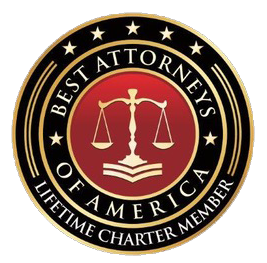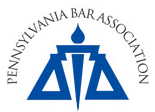Estate Planning Lawyers Pittsburgh
The documents We most frequently recommend for a complete estate plan are listed below. What should be included in your Estate Plan will depend upon your particular circumstances.
Among the factors are:
- The nature and value of your estate asset
- Are you married? Domestic Partners? Unmarried relationship?
- Do you want your estate to go to people of your choice?
- If you have an estate plan, have your reviewed it lately?
- Do you have minor children?
- Do you need to provide for your health care in an emergency?
- Is there someone to take care of your financial affairs in the case of an emergency?
- Do you want to avoid costly court cases?
Trusts
Trusts come in many different forms and serve a broad range of goals. Some of the trusts devised by our attorneys include:
- Living trusts
- Revocable and irrevocable trusts
- Asset protection trusts
- Charitable remainder trusts
- Supplemental needs trusts
- Testamentary trusts
- Inter vivos trusts
- Animal companion trusts
To learn more about trust documents and other estate planning services offered by our firm, schedule a free consultation today with an experienced estate planning lawyer. To contact one of our Pittsburgh trust lawyers call 412-271-6800
Wills
At its core, a Will has traditionally been the foundation of any estate plan. In addition to the Will, someone should consider powers of attorney, living Wills, trusts, life insurance, non-probate assets, etc. in their overall estate plan. As has been discussed in the Estate Planning section of this website, all of these elements of the estate plan should be carefully coordinated to provide the maximum benefit.
The costs associated with creating a Will pales in comparison to the problems and cost that can arise from not having a Will. We highly recommend that every adult in the United States should consider a Will, and we advise our clients and prospective clients to seek competent advice from a lawyer who practices in this area before creating a Will.
Health care directives (living will)
An advance health care directive (sometimes referred to as a living will) is a testament to the type and extent of treatment a person would like to receive at the end of his or her life. It can give instructions about surgeries, use of a ventilator or other medical technology to keep a person alive, amount of chemotherapy, and other procedures relating to end-of-life decisions. An advance health care directive or living will, can also appoint a conservator to make these decisions on a person’s behalf.
End of life decisions are not easy to make, and they are especially difficult for family members who have no direction as to the wants of the incapacitated person. Taking time to express your wishes regarding these matters can relieve the burden on your family in a stressful and emotional situation.
The attorneys at Martin & Lerda are experienced in helping clients express their end-of-life medical care wishes in advance health care directives. We will discuss the importance of these directives and help you define the specific terms of the document.
Powers of attorney
If you do not appoint someone to manage your finances and your health care should you become incapacitated, you risk the court appointing someone. Possibly a stranger or even a distant family member to take control over your financial affairs and your health care decisions.
With help from two basic documents, you can put those fears to rest. Every person’s estate plan regardless of wealth, should contain a health care power of attorney and a financial power of attorney.
At Martin & Lerda, in Pittsburgh, we make these documents part of every estate plan we create. With compassionate questions and careful listening, we create powers of attorney that are as simple or as complex as necessary to meet our clients’ goals and clearly express their wishes.
To schedule a complimentary consultation and begin creating an estate plan, contact our estate planning office to make an appointment with one of our Pittsburgh powers of attorney lawyers.
Trust And Estate Litigation
The trustee of a trust owes the beneficiaries of that trust certain fiduciary duties of honesty, prudence, and loyalty. When those duties are violated by a trustee, a bequest may be put in jeopardy. The attorneys of Martin & Lerda can represent beneficiaries and trustees with the following trust issues and claims:
- Failure to make proper and timely distributions
- Improper investments
- Self dealing
- Excessive trustee compensation
- Interpreting ambiguous trust provisions
- Improper gifts from trusts and excessive distributions from a trust
In addition to adversarial actions, we represent beneficiaries and trustees with other trust litigation issues, such as reformation or judicial amendment of a trust where such amendment is required to serve the settlor’s original intention in making the trust. Call us at 412-271-3800 for answers to your trust and estate litigation questions.
Probate
Probate often involves:
- Proving in court that a decedent’s will is valid
- Identifying and inventorying the decedent’s property
- Having the property appraised
- Liquidating assets
- Paying debts and taxes
- Distributing the remaining property as the will directs
Though this explanation of probate may seem simple, the process usually is not. Creditors, family members, beneficiaries, the surviving spouse, and the personal representative for the estate all have an interest in the probate estate’s assets. Because each person has a different interest that is protected by law, the probate process can be lengthy, time-consuming, and costly.
Martin & Lerda represents beneficiaries and fiduciaries, including executors, trustees, conservators, and guardians throughout Pennsylvania probate courts in the following areas:
- Accounting actions
- Claims against fiduciaries
- Trust contests and reformation
- Will contests
- Will and trust construction and litigation
- Post-death tax planning
To learn more about our practice, please contact a Pittsburgh probate attorney at Martin & Lerda at 412-271-3800.







